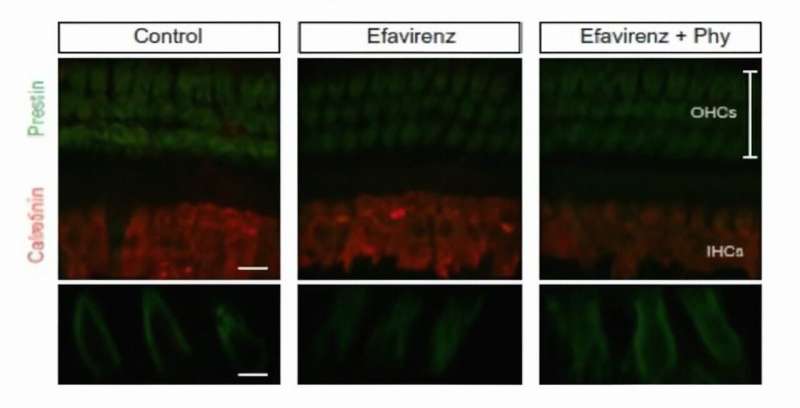This article has been reviewed according to Science X's editorial process and policies. Editors have highlighted the following attributes while ensuring the content's credibility:
fact-checked
peer-reviewed publication
trusted source
proofread
Study shows that common supplements may reduce natural hearing loss

Researchers report that age-related hearing loss is associated with a decrease of cholesterol in the inner ear.
Experiments published August 24 in the open access journal PLOS Biology show that phytosterols supplements were able to act in place of the lost cholesterol and prevent sensory dysfunction in mice.
Sensory cells in the inner ear called outer hair cells (OHCs) amplify sounds by changing their length. As we age, these cells lose their ability to stretch in response to sound, preventing sound amplification and leading to age-related hearing loss. Because cholesterol is a key player in the stretch response, and because brain cholesterol has recently been shown to decrease with age, researchers hypothesized that hearing loss might be related to loss of cholesterol in OHCs. This hypothesis was tested in mice.
First, the researchers measured the amount of CYP46A1 in inner ear OHCs because this enzyme helps break down and recycle cholesterol. As expected, they found more CYP46A1 in the inner ears of older mice than in younger mice, and consequently less cholesterol.
Next, they showed cause and effect by inducing hearing loss in young mice, as indicated by abnormal inner ear-cell output, by over-activating CYP46A1 with a drug. Finally, they tested whether increasing cholesterol in the brain could counter the drug.
Since cholesterol itself cannot actually enter the brain from the blood, the researchers used plant-based cholesterol-like compounds called phytosterols which can. The young mice who got both the CYP46A1-activating drug and three weeks of dietary phytosterols displayed improved OHC function.
As phytosterols can be found in many over-the-counter supplements, they could be a convenient way to combat age-related hearing loss. However, directly testing their effects on hearing loss in older mouse models as well as in humans will be necessary before more definite conclusions can be made.
The authors add, "In the present work we show that: 1) aging triggers cholesterol loss from sensory cells of the inner ear, 2) a retroviral treatment widely employed for HIV/AIDS patients reproduces the cholesterol loss observed in aged individuals and leads to impaired outer hair cells' function and 3) we found that these defects can be partly reversed by phytosterols supplementation."
"Our findings are very promising because they provide the first proof-of-principle supporting phytosterols supplementation as a possible approach for prevention or treatment of hearing loss."
The researchers were led by María Eugenia Gomez-Casati, the Institute of Pharmacology, School of Medicine, University of Buenos Aires-CONICET; Mauricio Martin, the Institute of Medical Research Mercedes; and Martín Ferreyra, (INIMEC-CONICET-UNC), National University of Córdoba in Argentina.
More information: Sodero AO, Castagna VC, Elorza SD, Gonzalez-Rodulfo SM, Paulazo MA, Ballestero JA, et al. Phytosterols reverse antiretroviral-induced hearing loss, with potential implications for cochlear aging. PLoS Biology (2023). DOI: 10.1371/journal.pbio.3002257




















